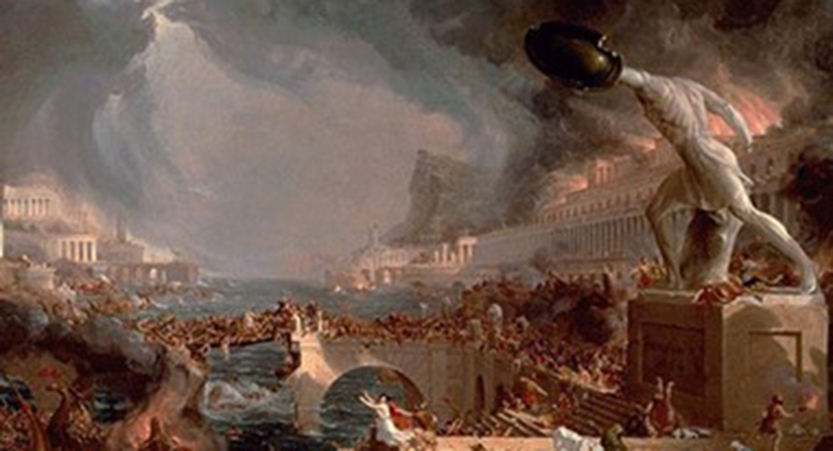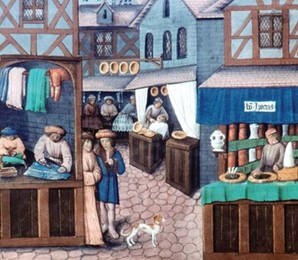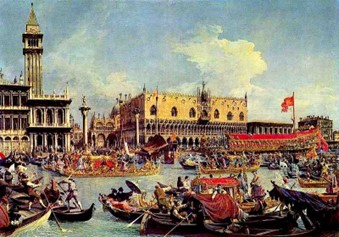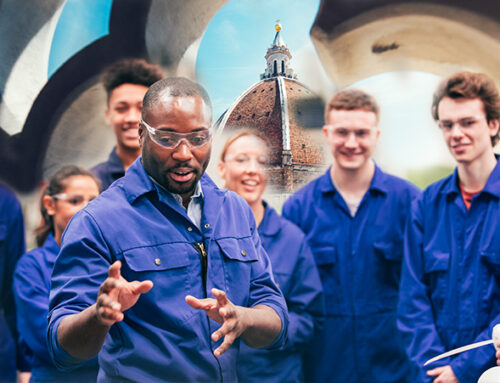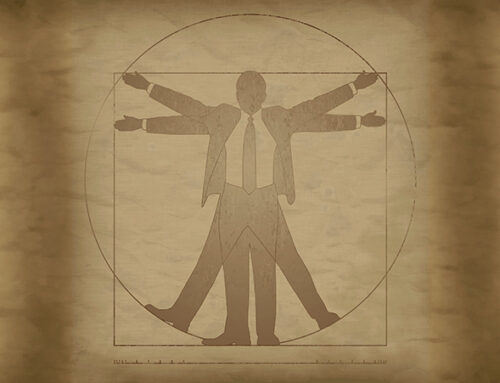Dr. Ed Schweitzer/ Schweitzer Engineering Laboratories (SEL) Laboratories presentation at the 2024 I-90 Aerospace conference demonstrated a strength of character and values rarely seen in leaders today. He called for a return to the basics of a good solid education, limited government, foundational business systems, and free markets.
Dr. Schweitzer articulated the principles and values on which this nation was founded and described the erosion of government and freedom, particularly over the past 30 years. He called for restoration of limited government and no handouts, like the Chips Act, so business can create, grow, and thrive based on consumer’s “Freedom to Choose”. He contrasted this approach to government picking winners and losers. He called for:
- Improvements in Education- “I don’t know what they are teaching in business school”
- Scientific Method- Engineering Problem Solving and “Root Cause Analysis”
- “Fair Free Flat and Open Markets”
- “Invent the Future” – Challenging businesses to stop reacting and restart Inventing the Future, as our ancestors did to create this country.
It is time for a Renaissance in business. Dr. Ed Schweitzer articulated a vision and path toward it. To understand, we start with the collapse of the Roman Empire which led to the Dark Ages, and Renaissance.
Roman Empire Collapse
The fall of the Rome empire and civilization, in the 4-5th century CE, occurred due to many of the same factors we are experiencing today.
Roman Empire versus Today 2024
| 400-500 CE | 2024 | |
|---|---|---|
| Agricultural businesses | Agricultural (one of the major businesses back in the day) changes in ownership from large estates owned by absent landowners cultivated by slave labor to individual cultivation of small plots owned by a tenant of a land magnate and cultivated by serfs. | Businesses are closing, merging and being acquired. Agricultural land is being acquired by individuals who lease land and corporate agricultural companies. Work force is changing dramatically |
| Government | Government expenses and exorbitant taxes | U.S. Debt has escalated since 1981 and is over $35 Trillion. Tax Rates and Debt are highest in any previous administration |
| Wars and exploration | Middle East, Ukraine, Israel Wars and other “conflicts” | |
| Political chaos and corruption | Current election chaos | |
| Government inefficiency, and breakdown | WA DC Democrats, Republicans and Administration; State Governments; National Debt , Debt Clock | |
| Colonialism | Ukraine War and military bases strewn throughout the planet | |
| Debased coinage (devaluing of currency) | Inflation | |
| Workforce | Peasants, who left agriculture, moving into town and swelling the ranks of the unemployed | Workforce Issues and Work Force layoff, shortages and changes during and post COVID |
| High cost and low efficiency of labor | Cost of employee and labor rates skyrocketed after COVID | |
| Pestilence | Pestilence and famine | COVID and other announced “Plandemics” on their way |
| Business and Innovation | Decreasing lack of inventive genius and technical improvements | Rate of ground-breaking scientific discoveries and technological innovation is slowing down despite an ever-growing amount of knowledge |
| Steadily degradation (inferiority) in Quality of goods | Deterioration in quality and supply chain issues including planned product End of Life | |
| Religion and Faith | Decay of Roman religion and Christianity | Decay )) Escalated since major denominations joined the World Council of Churches |
| Invasion | Goth (Germanic people) invasions | America’s Southern Border Invasions |
The city states and governments were depleted, and not organized and working together to fight off the Goth invasion. The Roman Empire collapsed, and civilization was lost. The Middle or Dark Ages set in. It would be 1000 years before civilization’s return in the Renaissance.
Middle (Dark) Ages and Renaissance
During the Dark Ages there was a loss and collapse of knowledge and wisdom, learning and education, morals and moral philosophy, human dignity and freedom, culture, government and law, language, and more. In the late Middle Ages, Kings and Queens and the Church had spent all their money in wars and the Crusades.
The Renaissance was the most profound cultural transformation in the entire history of the western world. Not only did it restore the learning and most humane values from Greek and Roman times, but it also initiated the birth of the modern world and set the stage for the emergence of capitalism and the Scientific Revolution. It affirmed the potential and creative capabilities of human beings and set them free again.
The Renaissance and return of civilization were the result of several factors.
- Joan of Arc who is attributed to ending the 100-year war,
- Petrarch inspiring the Italians to return to the deepest values of classical civilization, and
- Nucleation of towns by the merchants in partnership with crafts (which became businesses) expansion of trade.
Petrarch

Francesco Petrarch
The Walters Art Museum
“The Father of Humanism,” Francesco Petrarca, was the key figure behind this (Renaissance) cultural movement. The Italian scholar Petrarch (1304–74), knew he was living in a time of cultural collapse. Petrarch experienced the “Black Death,” a pandemic that killed 60 percent of the population in Florence, including his son and many friends. In Petrarch’s time, Italy was a collection of warring city-states, often ruled by corrupt tyrants. The legal system had declined. The law had become an overly arcane system that “sold justice.” The Catholic Church had become terribly corrupt. Petrarch, a Christian, referred to the papacy in France as “the Western Babylon” and “a nest of fornicators.” David Fideler PhD
“Petrarch’s followers, the Italian humanists, created a new form of education based on his own studies. This educational program was called the studia humanitatis (or “the humanities”), consisting of grammar (Latin), rhetoric (persuasive speaking), poetry, history, and most importantly, moral philosophy. Petrarch revived the humanities and classical education developed by Greek philosophers.”
“The humanities” was the foundation of American Education until the 1980s. Now there is not a remnant left in many states. With this loss has gone workforce capabilities.
The Humanists sought to transform the world by reviving the knowledge, arts, and moral philosophy of ancient Rome and Greece. They
- Created a new form of education. Start new types of schools. Returned to the humanities on which western civilization was built. The Humanities consists of grammar, rhetoric (persuasive speaking), poetry, history, and moral philosophy. Education
- Revitalized the knowledge and understanding of human dignity, the power to shape our own lives, and the knowledge that human beings (not artificial intelligence) can create great works and innovation. Work Force Development
- Revived knowledge, arts, and moral philosophy of their predecessors. Searched for and found lost books, manuscripts, and documents. Systems, Infrastructure, Knowledge, Understanding and Wisdom
Merchants and Small Business
The Renaissance revival began in the 11th century and lasted throughout the 12th and 13th centuries. It was characterized by three features which were mutually interdependent. The result was a social and economic revolution.
- Merchants and Trade and reformation of Towns- including expansion of trade and finally the large-scale resumption of commerce with the Byzantine and Islamic empires and Far East.
- Business and Manufacturing nucleation from crafts- including manufacturing for foreign and local markets.
- Agricultural and Town Expansion- Extension of agriculture by pioneers sent out to clear forest and drain marsh and swamp.
Together these movements revived the old Roman towns and found countless new ones. In addition, they produced three new social classes, all urban: the bourgeoisie (composed of manufacturers, merchants, and small traders); a new Class of workmen the skilled artisans; and the unorganized proletariat of unskilled labor. They contributed more than anything else to the liberation of the serfs and increase in population.
The merchants were used to their freedom. Combined now with the trades and small businesses they demanded freedom and won it. Often, they won their independence by silently assuming control and in some cases revolt. From the early time when professional merchants began to travel the highways they were recognized as a unique group, governed by their own customs and entitled to special protection of princes and kings. They had long managed their own affairs, settled their own disputes, organized to caravans for traits, and protected themselves when feudal lords could or would not protect them. They had never been touched by the legal disabilities of serfdom. They would tolerate no personal limitation, no restriction of freedom of movement that their business demanded. Combined now with the trades and small businesses they demanded freedom and won it. Often, they won their independence by silently assuming control and in some cases revolt.
The commercial revival was ushered in by the Italian towns. As early as the 11th century Venice was a rich and prosperous city, a virtually independent oligarchy of merchant plutocrats. In exchange for Eastern imports the West had to export either raw products or manufactured goods. The importation of the products of the Eastern industry furnished models and an incentive to Western craftsmen, and the profits of Eastern trade began to furnish capital for the development of Western industry. In many lines the West had to make goods formerly imported from the east – textiles, draperies, carpets, furniture, enamels, and glass. Western products soon equaled Eastern products in excellence. Finally, they surpassed them and drove them off the Western market.
The emergence of small businesses, with mercantilism, of capitalism started a development that has not yet ceased, and from which perhaps we are only now beginning to look backwards. Ideas, following goods and merchants, traveled faster from town to town. The whole manner of life of the rich town concentrated on making or keeping a fortune and enjoying the pleasant things of this life, was fundamentally different from the spirit of earlier centuries, when, aside from war and religion, there was little to enjoy. Now a man might lead or hope to lead a full and active pleasurable and profitable earthly life. [1]
[1] An Introduction to Medieval Europe 300-. 1500, James Westfall Thompson and Edgar Johnson, WW Norton Company, Inc Publishers New York 1937.”
It is time for a New Renaissance in business.
So many lessons from history and much knowledge and understanding have been lost or hidden. Businesses see it every day in degradation of systems and infrastructure, decline of work force behaviors, decrease in operations and production efficiency and profitability, diminishing quality and late delivery of products and services.
Could we revive our past into a new Renaissance? Yes, we have all the historical drivers and makings of a Renaissance, when we understand our power and purpose as a business and individual.
Should we be looking forward to minds embedded with mRNA technology and nanotech and a grim future where engineering and manufacturing is done by AI robots offshore or a cloud? AI Post. Or should we recollect and recapture what was lost and rebuild on the foundational systems that made civilization, and “Invent a New Future”?
Our foundation and infrastructure are crumbling. We cannot just add a top floor of Artificial Intelligence, with a robotic maid or friend, and expect things to go well. It is time for a positive, expansive vision and plan built from recollection and a strong foundation, not AI and an Alternative Reality because we lost what we once had.
We can re-establish the function and capability of the human mind and spirit, business, and innovation, that recreated civilization during the Renaissance- A New Reality based on human dignity, intelligence, knowledge and understanding and the past before moving forward.
“By revisiting principles that have withstood the test of time, businesses can gain a deeper understanding of their operations and strategy. This is not a step back but a strategic move forward. In a world fixated on innovation and disruption, it is precisely through this re-evaluation that real progress can be achieved. By embracing the wisdom of the past, we lay the groundwork for a more sustainable approach to growth and development, anchored in solid foundations rather than fleeting trends.” David Nave, W. Edwards Deming Institute Associate
As in the Dark Ages, today small to medium size businesses are instrumental in saving civilization. Businesses have everything at stake and can fight to defend what they have and “Invent a New Future”.
In our upcoming series of articles on Business Renaissance, you will learn:
- Details of the Renaissance and how they provide guidance of to “Invent a New Future.”
- Education, workforce development, and systems and infrastructure challenges and solutions.
- Business tax, regulation, supply chain, etc. challenges and solutions
- Cost, Benefit and Return on Investment (ROI) of implementing business excellences and improvement programs.
- Workforce development programs, benefits, and ROI.
- Step by Step plan, templates and case examples for business optimization and Renaissance.
How can we help?
The Mervyn Group partners are passionate about helping businesses thrive under what have become harrowing conditions. We are ready to assist in reviving and optimizing your business, and/ or potentially creating your own Renaissance business. We
- Are professionals who grew up in large and medium sized companies during their heyday, when business best practices, classical education, and knowledge and understanding were the foundation of a company.
- Led the large and small businesses of excellence of the recent past were at their peak.
- Know the best business practices and foundational knowledge.
- Utilized that knowledge and experience and played instrumental roles in optimizing operations, manufacturing or service, and delivery in all types of companies.
- Provide full lifecycle services.
Our background, approach and leadership are grounded in technical and engineering disciplines. We bring this experience into every project, along with our business management expertise.
We will help you understand your purpose and vision and create a plan without compromising your values. We will help you evaluate and partner with you to quickly implement solutions and sustainable improvements to achieve your vision, mission, goals and objectives.
To Learn More Contact Debra Mervyn- Debra@MervynGroup.com

